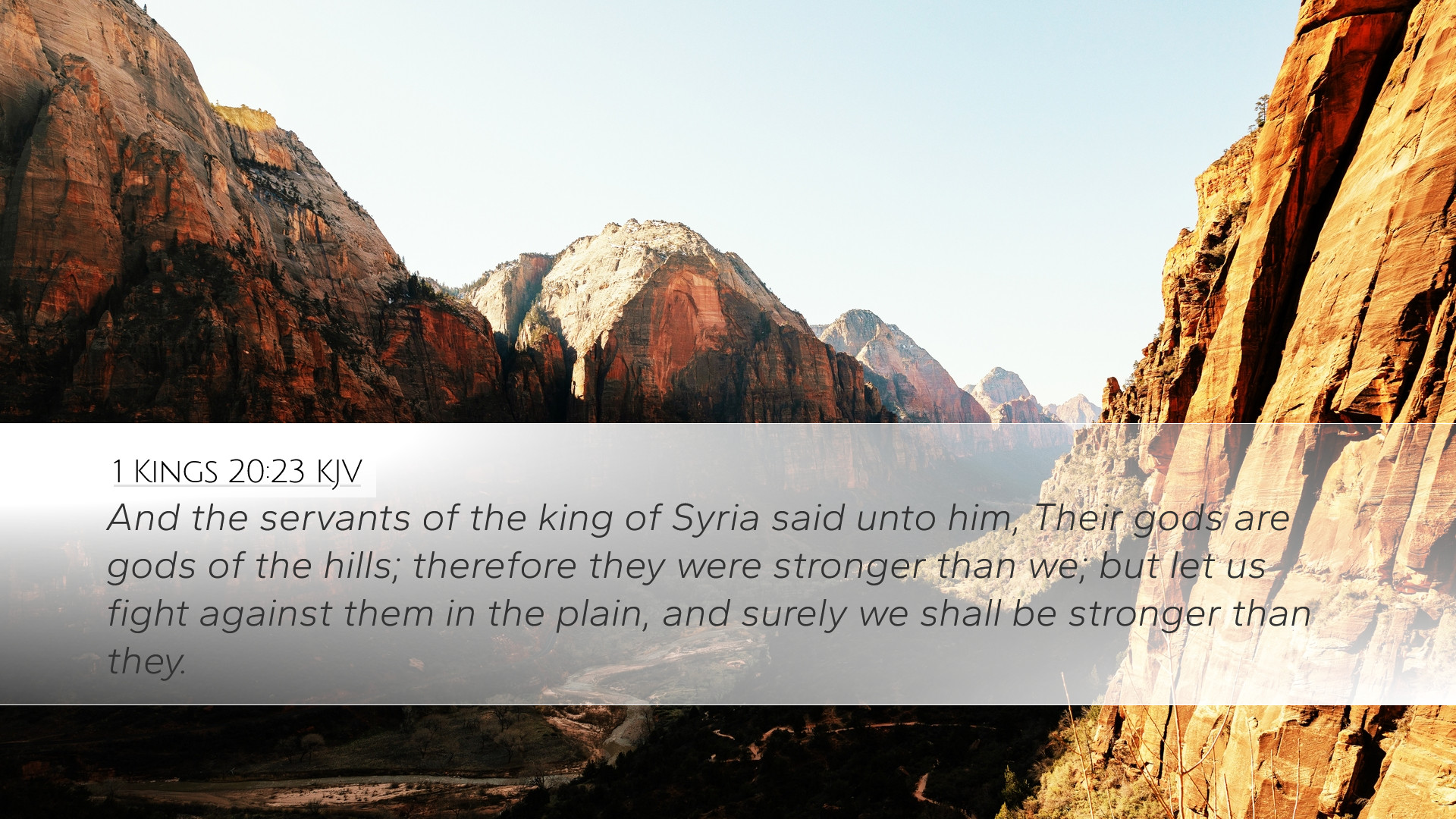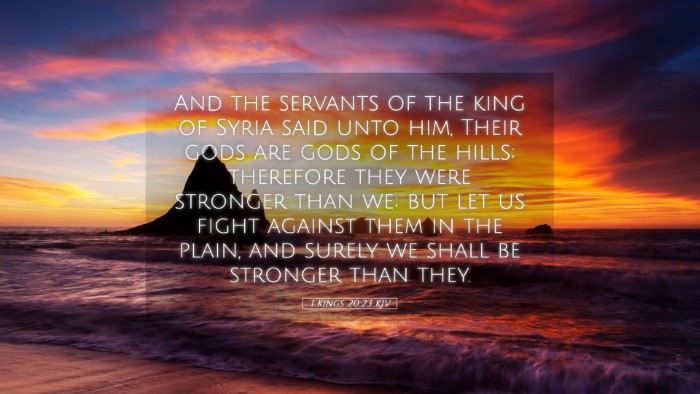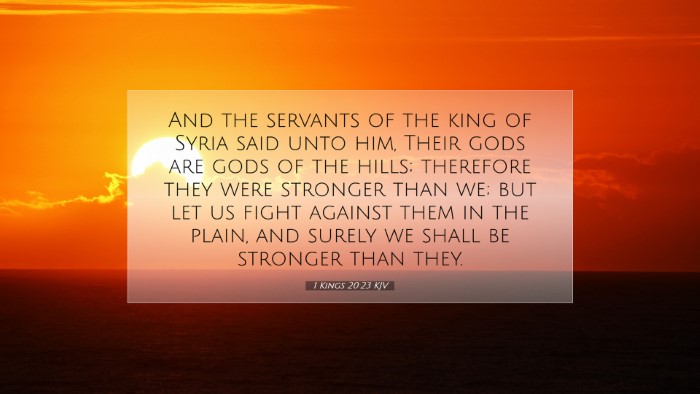Commentary on 1 Kings 20:23
1 Kings 20:23 states:
"And the servants of the king of Syria said unto him, Their gods are gods of the hills; therefore they were stronger than we: but if we fight against them in the plain, surely we shall be stronger than they."
Introduction
The narrative in 1 Kings 20 depicts a confrontation between the Israelite king Ahab and Benhadad, king of Syria. The verse in question reveals the mindset of the Syrian servants as they interpret their previous defeat against Israel. This commentary draws on insights from various public domain commentaries, providing in-depth analysis for pastors, students, theologians, and Bible scholars.
Contextual Analysis
This verse occurs in a broader context where the Syrian forces had initially engaged Israel in battle, only to face a surprising defeat. The Syrian servants, acknowledging their miscalculation regarding the nature of Israel’s God, suggest a new strategy, believing that the geographical location of the battle influenced the outcome.
The statement reflects the common ancient Near Eastern belief in local deities who had power over specific territories. The Syrians attributed their defeat to the circumstance construed as divine limitation, suggesting a misunderstanding of God's sovereignty.
Theological Implications
This verse invites theological reflection on the nature of God and the relationship between divine power and human understanding. The servants reason that the God of Israel is limited to the hills, demonstrating a polytheistic perspective. This highlights:
- The Impermanence of Human Wisdom: Their reasoning reflects a fundamental flaw in understanding divine omnipresence.
- God’s Sovereignty: God transcends geographic confines, a theme reiterated throughout Scripture.
- Faith and Misconception: This passage challenges readers to consider their own understanding of God's capabilities and presence.
Insights from Commentaries
Matthew Henry
Matthew Henry elaborates on the human inclination to attribute God's actions to earthly circumstances rather than divine will. He notes that the Syrians underestimated the power of the true God, which is not restricted by geography. Their suggestion for a new battle strategy reflects a lack of spiritual insight about the nature of God's governance over His people.
Albert Barnes
Albert Barnes emphasizes the tactical implications of the verse. He comments on the psychological dynamics at play in warfare, where morale and belief in one's gods can greatly affect the outcome of battles. The servants’ conclusion reflects a common error in attributing divine favor based solely on victory, which can lead to miscalculations about the enemy's strength and resources.
Adam Clarke
Adam Clarke highlights the theological error made by Benhadad’s advisers. They erroneously believed that the God of Israel was akin to the regional gods of their own pantheon. Clarke insists that this sort of reasoning diminishes the greatness of God, who is sovereign over all creation, not just specific locales. Furthermore, Clarke notes that this passage serves as a reminder of human folly in attempting to understand divine matters through a limited and worldly framework.
Practical Applications
For contemporary readers, particularly pastors and theologians, several applications can be drawn from this passage:
- Understanding God's Nature: This verse encourages believers to recognize the fullness of God's character and power, which cannot be constrained by human reasoning.
- Faith in Adversity: It serves as a reminder that even in circumstances where God seems absent, His sovereignty remains intact. Believers are urged to trust in God’s unchanging nature.
- Engagement in Spiritual Warfare: The passage encourages reflection on the nature of spiritual battles, wherein understanding and aligning oneself with God's will is paramount to victory.
Conclusion
1 Kings 20:23 provides profound insights into the human condition when faced with divine authority and the dangers of misreading or underestimating God's presence. This commentary, incorporating insights from notable biblical scholars, validates the importance of a correct theological perspective that recognizes God’s omnipotence beyond human interpretation.


